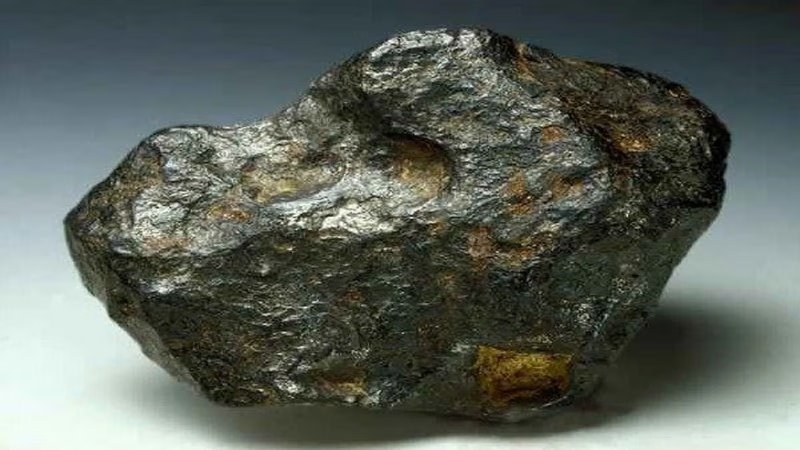
How does the Middle East facilitate meteorite and gemstone trade?
The Middle East has established itself as a dynamic hub for the trade of rare commodities, gemstones, and meteorites, connecting West Asia with global markets. Meteorites, in particular, are gaining traction as a niche but valuable asset, with growing interest among collectors and scientific communities. The Middle Eastern meteorite market benefits from its strategic position, facilitating the import and export of these celestial objects across Asia. Platforms that ensure the verification of sellers and buyers have contributed to the credibility and growth of this specialized market. Gemstones like chrysocolla, turquoise, and lapis lazuli also play a pivotal role in the region’s trade ecosystem. Chrysocolla, with its unique hues, has become increasingly popular in the Middle East, driving demand in B2B marketplaces and fostering connections between verified exporters and importers. Similarly, the region"s turquoise trade thrives, offering competitive pricing and robust supply chain solutions. Middle Eastern platforms are instrumental in connecting these gemstones to global markets, including emeralds, rubies, and pearls, which are staples in the jewelry industry.
Amber, known as the "Gold of the Sea," and fossils also form part of the broader commodity trade in West Asia. With increasing demand for these materials, Middle Eastern trade platforms provide insights into pricing, market trends, and export opportunities. The region’s expertise in supply chain management ensures seamless trade flows, even for rare materials like charoite and spinel. Aritral, an AI-driven B2B platform for commodities and raw materials, simplifies international trade by offering verified product listings, global sales assistance, and AI-driven marketing. Its tools can empower businesses to participate effectively in the Middle Eastern gemstone and meteorite markets, fostering transparency and growth. "
-
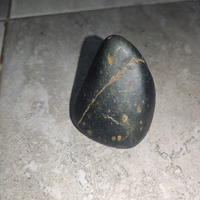 Essam Khalil 2 months ago
Essam Khalil 2 months ago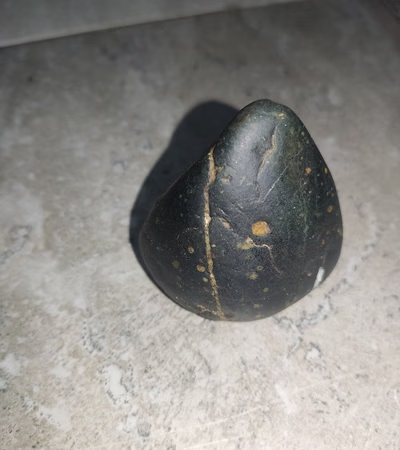 Egypt
Meteorite stones and rare gemstones
Egypt
Meteorite stones and rare gemstones
An heirloom stone that has been in the family's possession for more than 500 years. The stone is a very rare type of meteorite in very good condition....Details
-
 Ahmad Almasri 2 months ago
Ahmad Almasri 2 months ago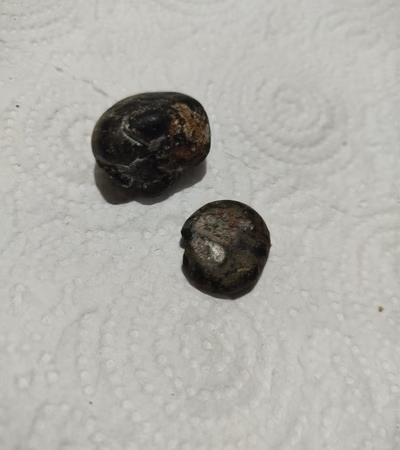 Turkey
Old Coins and Meteorite Stones
Turkey
Old Coins and Meteorite Stones
Meteorite StonesDetails
-
 Khaled 2 months ago
Khaled 2 months ago Morocco
Meteorite Stone
Morocco
Meteorite Stone
Meteorite weighing 297 gramsDetails
-
 Ali Awad 2 months ago
Ali Awad 2 months ago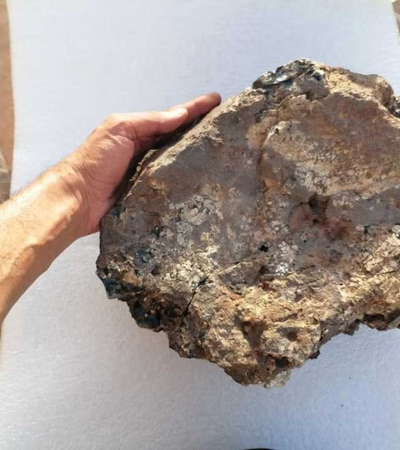 Yemen
Meteorite
Yemen
Meteorite
`Lunar meteorite for sale. Weight: 18 kilograms. Certificates: - Chemical analysis at ALS Chemex Laboratory in Vancouver, Canada - X-ray analysis at t...Details
-
 نيزك 2 months ago
نيزك 2 months ago Lebanon
Meteorite
Lebanon
Meteorite
MeteoriteDetails
-
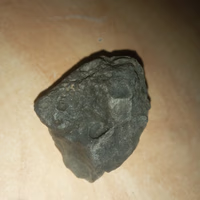 نيازك للبيع اسود 2 months ago
نيازك للبيع اسود 2 months ago Egypt
Meteorite
Egypt
Meteorite
Meteorite for sale 00201032905049Details
-
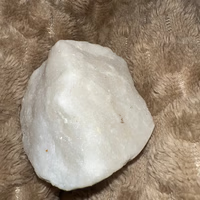 Hasnaa 1 months ago
Hasnaa 1 months ago United Arab Emirates
White Nyrik Stone
United Arab Emirates
White Nyrik Stone
Obtained a white stone that might be LazykDetails
-
 Saeed Moradi 2 months ago
Saeed Moradi 2 months ago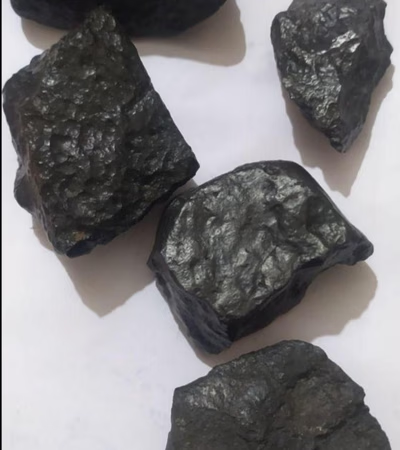 Iran
Carbonado Meteorite
Iran
Carbonado Meteorite
A number of original Carbonado meteorites for sale.Details
-
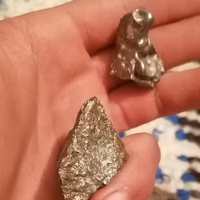 حجر نيزك حديدي 2 months ago
حجر نيزك حديدي 2 months ago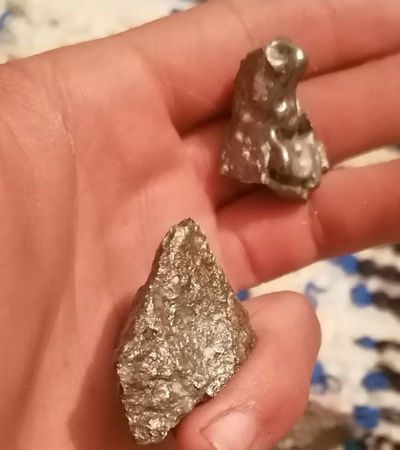 Morocco
Iron Meteorite
Morocco
Iron Meteorite
\`Iron meteorite found in Morocco, gray shiny, and beautiful, strongly attracted to magnets, dense for its size, weighing 146 gramsDetails
-
 Ahmad. Alyemen 2 months ago
Ahmad. Alyemen 2 months ago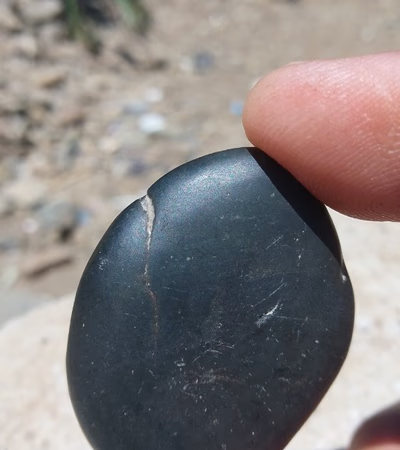 Yemen
Meteors
Yemen
Meteors
A collection of meteors for sale in Yemen. Contact 00967734590991Details
-
 کاوه مختاری 1 months ago
کاوه مختاری 1 months ago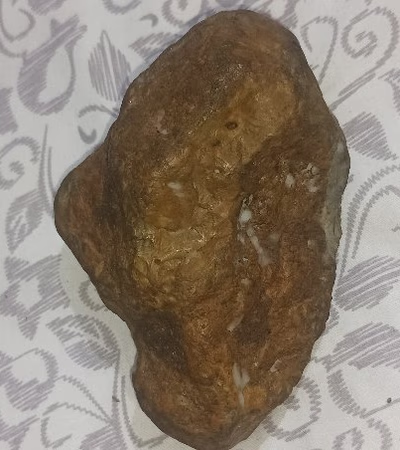 Iran
Yellow Diamond Meteorite
Iran
Yellow Diamond Meteorite
Martian Yellow Diamond MeteoriteDetails
-
 Fellaha Ibrahim 3 months ago
Fellaha Ibrahim 3 months ago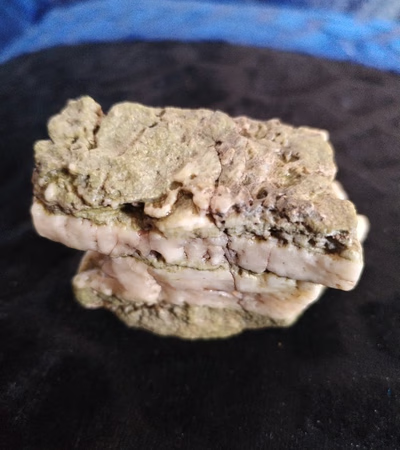 Algeria
Rare Stone
Algeria
Rare Stone
Mountainous StoneDetails
-
 محمد 2 months ago
محمد 2 months ago Morocco
Meteorite
Morocco
Meteorite
Meteorite pieceDetails
-
 Amin 3 months ago
Amin 3 months ago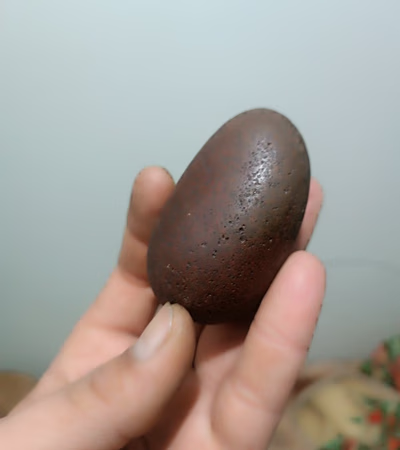 Iran
Meteorite
Iran
Meteorite
The hard and burned stone has caused the stone to become bicolored at the topDetails
-
 Bumblebee Gemstone 💎 3 months ago
Bumblebee Gemstone 💎 3 months ago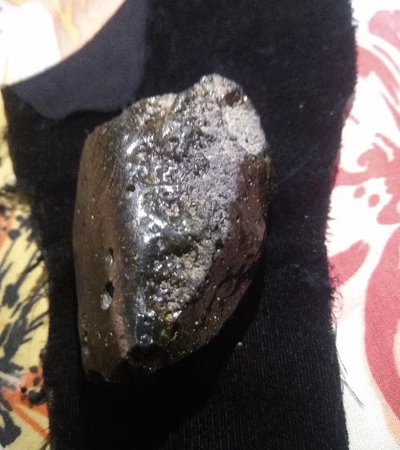 Pakistan
Carbonado Black diamond meteorite Stone
Pakistan
Carbonado Black diamond meteorite Stone
Carbonado black diamond meteorite gemstone 💎 for saleDetails
-
 Abd Al-Rahim 2 months ago
Abd Al-Rahim 2 months ago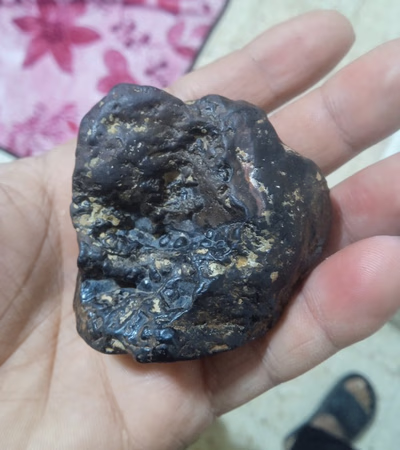 Algeria
Unclassified Meteorite
Algeria
Unclassified Meteorite
A non-magnetic, extremely hard metallic meteorite fell into a dried lake. For your information, I am unclassified.Details
-
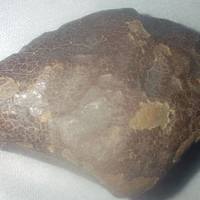 Ali Med 2 months ago
Ali Med 2 months ago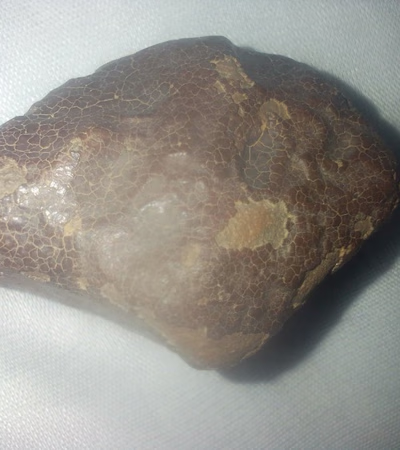 Mauritania
The meteorites
Mauritania
The meteorites
MeteoriteDetails
-
 Btm Associates 3 months ago
Btm Associates 3 months ago Pakistan
All kinds of gems stones
Pakistan
All kinds of gems stones
We deal with All kind of Jem stone and precious mineralsDetails
-
 نيزك حديدي وزنه ما يقارب 450للبيع في ما يرضى الله 3 months ago
نيزك حديدي وزنه ما يقارب 450للبيع في ما يرضى الله 3 months ago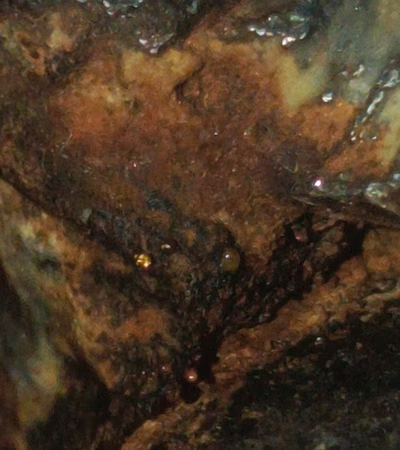 Jordan
Iron meteorite for sale, weight approximately 450 grams for sale in accordance with God's will
Jordan
Iron meteorite for sale, weight approximately 450 grams for sale in accordance with God's will
Peace be upon you, I have an iron meteorite for sale, its weight exceeds 450 grams for sale in accordance with God's willDetails
-
 Mohammad Al-Anzi 2 months ago
Mohammad Al-Anzi 2 months ago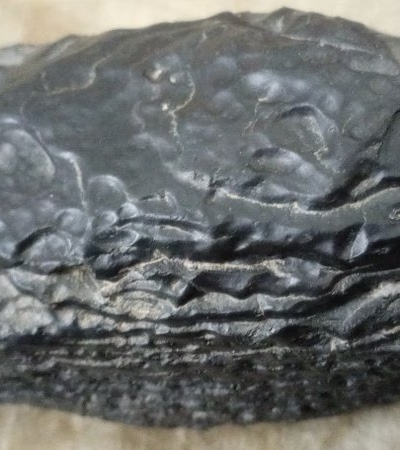 Saudi Arabia
Meteorite Stones
Saudi Arabia
Meteorite Stones
Interested in collecting gemstones and meteoritesDetails
-
 Erkan 2 months ago
Erkan 2 months ago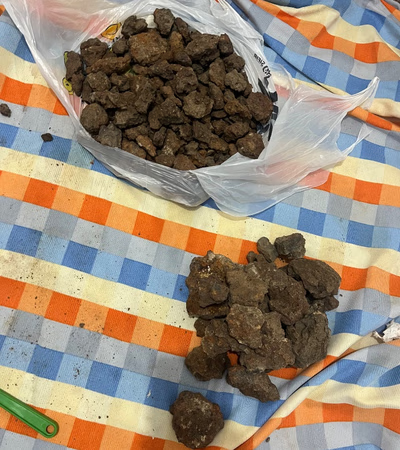 Turkey
Meteorites
Turkey
Meteorites
Meteorites approximately 20 kilosDetails
-
Agate Trade in West Asia: Market Insights and Export Trends
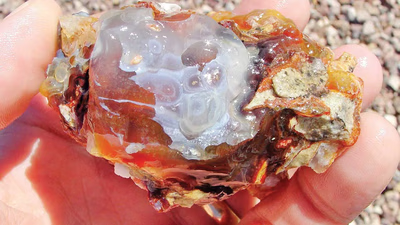
Agate, a semi-precious gemstone renowned for its vibrant colors and unique patterns, holds a central position in the West Asian and Middle Eastern trade dynamics. The region, particularly countries like Iran, boasts significant agate reserves, making it a hub for global exports of agate, opal, and onyx gemstones. Known for its durability and aesthetic appeal, agate is highly sought after in jewelry and decorative industries worldwide. The Asian agate market is witnessing growth, fueled by increasing demand from both local and international buyers. Middle Eastern trade platforms play a pivotal role in connecting global markets to verified exporters and importers, offering transparency and efficiency. These platforms provide essential services such as product listings, market insights, and trade advertising, ensuring seamless transactions across borders. The trade of agate, alongside other gemstones like turquoise, ruby, and lapis lazuli, has become highly profitable due to the region’s rich geological resources and strategic location. Iran, in particular, stands out for its vast agate reserves, contributing significantly to the gemstone trade in West Asia.
The export potential of agate and similar gemstones is bolstered by regional B2B marketplaces, fostering business networking opportunities and supply chain solutions. Verified exporters leverage these platforms to showcase region-specific product listings, enhancing trust and global reach. Additionally, gemstones like chrysocolla and turquoise add to the region’s allure, with their unique colors and cultural significance. The Middle East facilitates robust trade networks for these stones, bridging Asian and global markets. As the demand for gemstones like agate continues to rise, platforms like Aritral offer AI-driven solutions to streamline international trade, enabling businesses to capitalize on this growing market efficiently.
-
Amber Trade in Middle East: The Gold of the Sea in West Asia Markets
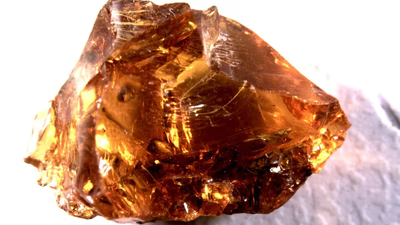
Amber, often referred to as the "Gold of the Sea," holds a unique position in the Middle Eastern and West Asian trade markets. Its organic origins and rich hues, ranging from honey to deep orange, make it a prized gemstone in the global jewelry industry. Middle Eastern trade platforms, particularly B2B marketplaces, play a pivotal role in connecting verified exporters and importers for amber and other gemstones such as turquoise, chrysocolla, and ruby. Oriental Amber Traders in Asia leverage these platforms to facilitate seamless transactions and access regional product listings, ensuring transparency and trust. Amber"s significance extends beyond aesthetics. In various cultures, it is believed to have therapeutic properties, which adds to its market value. The Middle East, as a central hub for commodity trade, has seen a surge in demand for amber and its derivatives. Regional platforms provide market insights, helping businesses navigate pricing trends and demand fluctuations effectively.
Amber is not the only gemstone thriving under this dynamic. Chrysocolla, with its striking blue-green colors, is gaining traction in the jewelry industry, while turquoise and lapis lazuli continue to be celebrated for their ancient ties to Middle Eastern heritage. From emeralds associated with wealth to diamonds symbolizing prestige, these gemstones are traded extensively through West Asian supply chains. This is bolstered by verified B2B platforms that enhance transparency and facilitate global networking. Aritral, an AI-driven B2B platform, supports this ecosystem by offering tools like AI-powered marketing and global sales assistance. These features empower traders to manage profiles, advertise products, and connect with verified buyers and sellers. With the Middle East"s strategic location and robust trade networks, gemstones like amber are poised for sustained growth, reinforcing the region"s status as a global trade hub. "
-
Charoite"s Role in Middle Eastern Gemstone Trade"

Charoite, a rare and striking violet gemstone, is gaining momentum in the Middle Eastern and West Asian markets as a valuable commodity for luck, wealth, and metaphysical benefits. The region"s dynamic B2B trade platforms have enabled seamless connections between verified exporters and importers, driving growth in the gemstone industry. The Middle East, a hub for global gemstone trade, facilitates the buying and selling of Charoite through advanced supply chain solutions and regional product listings. These platforms provide market insights, allowing businesses to navigate pricing trends and expand their networks effectively. Charoite is especially sought after in West Asia, where its unique aesthetic and metaphysical properties—linked to luck, wealth, and harmony—make it a preferred choice for jewelry and spiritual purposes. Verified exporters in the region ensure authenticity, supporting the gemstone"s premium market positioning. Importers leverage Middle Eastern trade advertising platforms to source high-quality Charoite, contributing to its rising demand. The Middle Eastern gemstone market also thrives on synergies with other valuable stones like Chrysocolla, Turquoise, Ruby, and Tanzanite.
These gemstones, known for their distinct colors and cultural significance, complement Charoite in trade dynamics. As regional platforms evolve with AI-driven marketing tools, exporters and importers find it easier to scale their operations, diversify their portfolios, and enhance transparency in trade. Aritral, for instance, empowers businesses by streamlining international transactions and facilitating direct communication across borders. In conclusion, Charoite"s growing prominence in the Middle East and West Asia underscores the significance of regional trade platforms in connecting global markets. This gemstone"s role in fostering wealth and luck not only bolsters its demand but also cements its place as a cornerstone in the thriving gemstone industry of the region.
-
Chrysocolla: A Gemstone in Middle Eastern Trade Dynamics
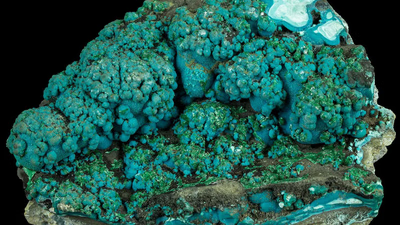
Chrysocolla, a captivating gemstone admired for its vibrant green and blue hues, has emerged as a valuable commodity in the Middle East and West Asia"s gemstone trade. Known for its resemblance to turquoise, this unique mineral is in high demand among collectors, jewelers, and industrial buyers across these regions. Chrysocolla"s appeal lies in its aesthetic properties and its versatility, making it a sought-after material for jewelry, carvings, and ornamental uses. The Middle East and West Asia are pivotal hubs for the global gemstone trade, facilitating connections between verified exporters and importers through B2B marketplaces. Regional platforms are enhancing transparency and efficiency in commodity trading by offering supply chain solutions and accurate market insights. Chrysocolla has carved a niche within this ecosystem, benefiting from the established networks used to trade gemstones like turquoise, ruby, emerald, and lapis lazuli. The role of trade advertising platforms in showcasing Chrysocolla’s unique attributes has further boosted its visibility and sales. Chrysocolla’s similarity to turquoise adds intrigue to its market dynamics.
In regions like West Asia, where turquoise gemstones have historic significance, Chrysocolla has attracted buyers looking for affordable yet equally impressive alternatives. These dynamics are reflected in regional product listings and marketplace trends, where Chrysocolla is gaining attention alongside other gemstones such as jade, ruby, and amber. Aritral, an AI-driven B2B platform simplifying international trade, is contributing to this transformation by offering services like global sales assistance, AI-powered marketing, and verified exporter profiles. Its supply chain solutions are particularly valuable for commodities like Chrysocolla, ensuring seamless transactions in the competitive Middle Eastern gemstone market. As Chrysocolla continues to shine in the gemstone industry, its trade reflects the broader integration of Middle Eastern markets with global supply chains, creating lucrative opportunities for businesses across Asia and beyond.
-
Middle Eastern Diamond Trade: Insights and Future Trends
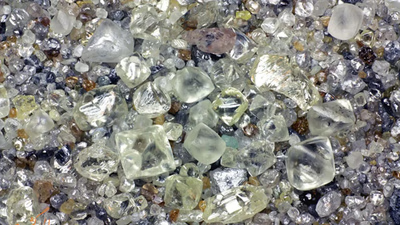
The Middle East and West Asia are increasingly pivotal in the global diamond trade, leveraging their strategic position as crossroads between East and West. While the region is not a top diamond producer, it ranks sixth globally, with notable resources distributed across specific areas. For instance, some Middle Eastern territories are seeing growing interest in diamond mining, bolstered by advancements in exploration techniques and market demand. However, the Middle East’s commercial advantage lies in its role as a trading hub rather than a primary producer. Verified exporters and importers rely on regional B2B marketplaces to facilitate secure and efficient trade. The diamond trade in the Middle East benefits from a well-integrated supply chain and dynamic market insights. These platforms enable businesses to list regional products, advertise trade opportunities, and connect with stakeholders across Asia and beyond. Diamonds, along with other gemstones like turquoise, ruby, and emerald, are traded extensively, especially in jewelry and luxury sectors.
As a complement to diamonds, other minerals like lapis lazuli, jade, and amber (nicknamed ‘Gold of the Sea’) further diversify the Middle Eastern gemstone economy. Historically, diamonds have represented wealth, and their demand continues to rise globally, with Asia emerging as a significant consumer base. Middle Eastern trade platforms simplify this process by providing AI-powered marketing solutions, product listing management, and verified user networks. For instance, platforms like Aritral enable businesses to navigate the intricate import-export landscape with ease. This digital shift is increasingly critical as the diamond trade moves into the future, driven by consumer preferences for transparency and ethical sourcing. With innovations in trade technology and a strategic geographic location, the Middle East remains a cornerstone of the global diamond and gemstone economy.
-
Emerald and Middle Eastern Gemstone Trade Insights
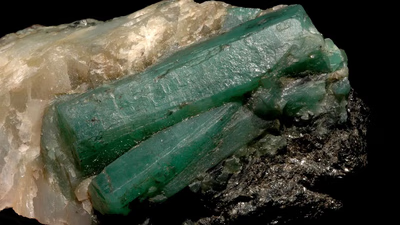
Emerald, regarded as the second most precious gemstone after diamond, holds a pivotal role in the Middle East and West Asian gem trade. Renowned for its vivid green hue, this precious stone is a symbol of wealth and prosperity, and its trade contributes significantly to regional economies. The Middle East serves as a central hub for the import and export of emeralds, leveraging its strategic location to connect Asian and global markets. Verified exporters and importers on platforms like Aritral have facilitated a more secure and transparent trading environment, establishing trust among buyers and sellers. Emerald’s value lies not only in its rarity but also in its perception as a stone that can increase the flow of wealth and good fortune. Distinguishing natural emeralds from synthetic ones requires expertise, as genuine stones exhibit slight inclusions and a distinct color vibrancy. Key emerald reserves and mines are located in Colombia, Zambia, and Brazil, with significant demand coming from Middle Eastern jewelry markets. In addition to emeralds, the region’s gemstone trade encompasses spinel, turquoise, ruby, and lapis lazuli.
Spinel, known for its durability and diversity in color, is gaining traction in West Asia due to its affordability and aesthetic appeal. Similarly, the Middle Eastern pearl and turquoise markets thrive, with pearls symbolizing elegance and turquoise reflecting cultural heritage. B2B marketplaces like Aritral are streamlining the gemstone trade by offering advanced supply chain solutions, regional product listings, and market insights. This infrastructure supports the efficient trading of gemstones, fossils, and meteorites, helping businesses navigate pricing dynamics and market trends. The Middle East’s role as a gemstone trade hub underscores its importance in connecting Asia with international markets, driving economic growth in the region.
-
Jade Stone Trade in West Asia: Insights and Market Trends
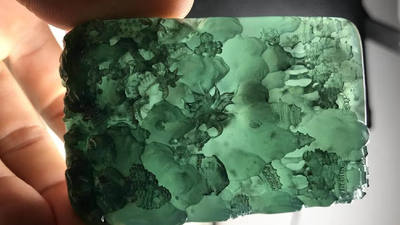
Jade, often referred to as the "Stone of Paradise," plays a significant role in the gemstone trade of West Asia and the Middle East. The Middle Eastern jade market is a hub for verified exporters and importers, connecting global buyers with regional suppliers through dynamic B2B platforms. Known for its transcendental properties and rich cultural significance, jade finds demand in jewelry, décor, and spiritual uses. Pricing for jade is influenced by its color, clarity, origin, and craftsmanship, with premium-grade jade sourced from renowned mines in Asia commanding the highest value. The Middle East serves as a critical link between Asia and international markets, facilitating the trade of not only jade but also other gemstones like turquoise, ruby, and lapis lazuli. Platforms specializing in gemstones offer detailed product listings, market insights, and supply chain solutions, ensuring transparency and efficiency. Jade"s appeal lies in its vibrant green hues and symbolic value, making it a sought-after commodity for both collectors and commercial buyers. In addition to jade, the region also excels in the trade of other rare minerals such as chrysocolla, spinel, and amber.
Verified exporters leverage advanced trade advertising platforms to promote these products, while importers benefit from access to authenticated sources. The Middle Eastern jade market, supported by robust supply chain networks, continues to thrive as a vital component of its broader gemstone trade ecosystem. Aritral, an AI-driven B2B platform, simplifies these transactions by providing product listing services, direct communication tools, and AI-powered marketing solutions to enhance global sales. By fostering trust and efficiency, platforms like Aritral enable seamless trading experiences for jade and other gemstones in the Middle East and beyond. "
-
Lapis Lazuli Trade in West Asia and Middle Eastern Gemstone Markets
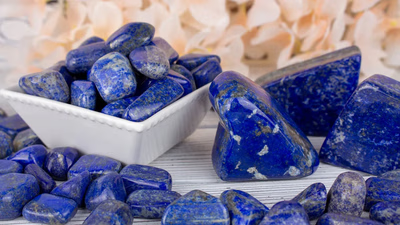
Lapis lazuli, a mesmerizing azure gemstone, has been a cornerstone of trade and culture in West Asia for centuries. Known for its deep blue color and spiritual properties, it holds a prominent place in the global gemstone market, particularly in the Middle East and Asia. This region serves as a critical trade platform, leveraging historical trade routes and modern B2B marketplaces to connect verified exporters and importers for gemstones like lapis lazuli, ruby, emerald, and turquoise. The Middle East, as a hub for commodity trade, facilitates the import and export of lapis lazuli through well-structured supply chain solutions and regional product listings. This enables businesses to tap into market insights and enhance their reach across West Asia and beyond. Lapis lazuli mines, primarily located in Afghanistan, are central to its trade, with the stone being used in jewelry, decor, and chakra therapy. Differentiating genuine lapis lazuli from synthetic variations remains a key challenge, but modern techniques and trade standards help ensure authenticity. Emerald, one of the most precious stones after diamonds, also plays a significant role in regional trade, driving economic value and financial flow.
Similarly, gemstones like spinel, turquoise, and amber underline the diverse market dynamics in the Middle East. Spinel, with its vibrant hues, is particularly popular in jewelry, while turquoise, often linked to ancient Middle Eastern cultures, continues to thrive in contemporary trade. Other stones like tanzanite, jade, and charoite further diversify the market, attracting international buyers. Platforms like Aritral simplify these global trade dynamics by offering AI-powered marketing, product listings, and verified sourcing solutions. Such platforms ensure that businesses remain competitive in the gemstone trade while navigating the complexities of the Middle Eastern and Asian markets.
-
Middle East Meteorite and Gemstone Trade Insights

The Middle East has established itself as a dynamic hub for the trade of rare commodities, gemstones, and meteorites, connecting West Asia with global markets. Meteorites, in particular, are gaining traction as a niche but valuable asset, with growing interest among collectors and scientific communities. The Middle Eastern meteorite market benefits from its strategic position, facilitating the import and export of these celestial objects across Asia. Platforms that ensure the verification of sellers and buyers have contributed to the credibility and growth of this specialized market. Gemstones like chrysocolla, turquoise, and lapis lazuli also play a pivotal role in the region’s trade ecosystem. Chrysocolla, with its unique hues, has become increasingly popular in the Middle East, driving demand in B2B marketplaces and fostering connections between verified exporters and importers. Similarly, the region"s turquoise trade thrives, offering competitive pricing and robust supply chain solutions. Middle Eastern platforms are instrumental in connecting these gemstones to global markets, including emeralds, rubies, and pearls, which are staples in the jewelry industry.
Amber, known as the "Gold of the Sea," and fossils also form part of the broader commodity trade in West Asia. With increasing demand for these materials, Middle Eastern trade platforms provide insights into pricing, market trends, and export opportunities. The region’s expertise in supply chain management ensures seamless trade flows, even for rare materials like charoite and spinel. Aritral, an AI-driven B2B platform for commodities and raw materials, simplifies international trade by offering verified product listings, global sales assistance, and AI-driven marketing. Its tools can empower businesses to participate effectively in the Middle Eastern gemstone and meteorite markets, fostering transparency and growth. "
-
Middle Eastern Pearl and Gemstone Trade Insights
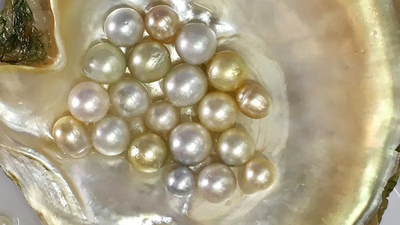
The Middle Eastern pearl market has long been a cornerstone of the region’s rich trade history, especially along the Persian Gulf, renowned for some of the finest natural pearls in the world. Pearls, often referred to as the ‘gems of the sea,’ continue to thrive in the modern commodity trade of West Asia, bolstered by growing demand from neighboring Asian markets. The distinction between natural pearls, cultured pearls, and artificial alternatives plays a critical role in pricing, with natural pearls remaining the most valuable due to their rarity and unique formation process. The Persian Gulf remains a global hub for pearl fishing, a tradition steeped in history but evolving through modern supply chain solutions to meet international standards. The import and export of pearls in the Middle East are facilitated by B2B marketplaces, which connect verified exporters and importers while ensuring transparency and efficiency. These platforms also provide market insights, allowing businesses to navigate fluctuating demand and pricing influenced by factors like quality, size, and origin. The rise of trade advertising platforms and business networking opportunities further supports the visibility and global reach of Middle Eastern pearl traders. The Middle East also plays a significant role in the broader gemstone market, including chrysocolla, turquoise, ruby, emerald, and lapis lazuli.
Chrysocolla, with its vibrant blue-green hues, and turquoise remain particularly sought after in jewelry markets, while gemstones like ruby and emerald cater to high-end luxury buyers. These stones often pass through the same trade and supply chain networks as pearls, leveraging regional strengths in import-export frameworks. Aritral, an AI-driven B2B trade platform, enhances this ecosystem by offering product listings, global sales assistance, AI-powered marketing, and profile management, simplifying transactions for both pearls and gemstones. It empowers Middle Eastern businesses to expand into global markets efficiently while maintaining trust and transparency.
-
Ruby and Gemstone Trade in the Middle East: Insights and Dynamics
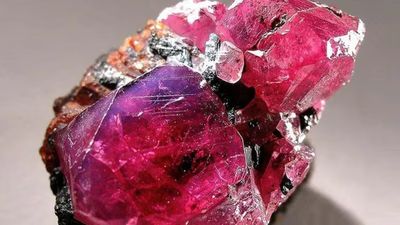
The gemstone trade in West Asia and the Middle East has long been a cornerstone of regional commerce, connecting markets across Asia through a dynamic B2B ecosystem. Ruby, with its deep red hues and exceptional brilliance, holds a special place in this market. Known for its beauty and versatility, ruby gemstones are a favorite in the jewelry industry, contributing significantly to the Asian Ruby Crystal Market and the Natural Ruby Stone value in the Middle East. The pricing of rubies is influenced by their origin, clarity, and size, with Burmese rubies often commanding the highest premiums. Verified exporters and importers facilitate a seamless supply chain for rubies and other gemstones, ensuring quality and authenticity in trade. Beyond ruby, other prized gemstones such as lapis lazuli, emerald, spinel, turquoise, and pearl dominate the trade landscape. Lapis lazuli, for instance, is highly sought after for its azure tones and historical significance, with trade flourishing through Middle Eastern and West Asian markets. Emerald, often considered second only to diamonds in value, boosts economic activity in the region due to its luxurious appeal and increasing demand in jewelry design.
Spinel, with its wide range of colors, and turquoise, valued for its ancient cultural symbolism, also play pivotal roles in regional trade. The Middle East serves as a hub for the import and export of gemstones, pearls, fossils, and meteorites, leveraging platforms like Aritral to provide market insights, verified business networking, and trade advertising solutions. This robust infrastructure supports not only gemstones but also commodities like amber, jade, charoite, and tanzanite, which see steady demand in global markets. By fostering regional product listings and facilitating direct communication, the Middle East continues to promote growth in the gemstone and broader commodities trade, making it a vital link in Asia"s supply chain solutions. "
-
Exploring the Market Insights of Spinel in the Middle East
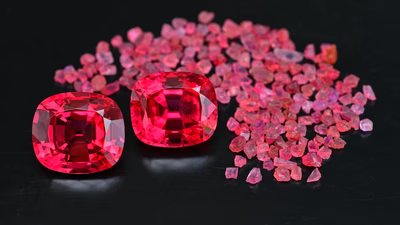
Spinel, a versatile and precious gemstone, holds a pivotal place in West Asia and the Middle Eastern trade markets. Renowned for its vibrant hues ranging from deep red to cobalt blue, Spinel has historically been mistaken for rubies, adding to its intrigue in the global gemstone trade. The Middle East, with its well-established role as a trade hub, facilitates the import and export of Spinel through B2B marketplaces, verified exporters, and transparent supply chain solutions. Platforms like Aritral enable regional product listings and provide market insights, ensuring efficiency and security in transactions. The market of Spinel in the Middle East is thriving due to its growing demand in luxury jewelry and its symbolic significance in various cultures. Spinel"s competitive pricing compared to ruby and emerald makes it an attractive alternative for buyers. For instance, red Spinels, often sourced from mines in Myanmar and Sri Lanka, are highly prized for their rich colors and durability. Methods to differentiate Spinel from ruby include advanced gemological tools, as Spinel typically exhibits unique optical properties like a single refractive index.
West Asia also contributes significantly to Spinel"s trade dynamics, leveraging its proximity to major mines and its strategic position in global trade routes. Pricing strategies for Spinel vary based on factors such as origin, clarity, and size. Artificial Spinels are detectable through fluorescence, inclusions, and refractive testing. The demand for other gemstones such as turquoise, pearl, ruby, and lapis lazuli complements Spinel"s market growth, supported by the Middle East"s expertise in gemstone trade networks. Aritral, an AI-driven B2B platform, streamlines Spinel transactions by offering direct communication tools, AI-powered marketing, and global sales assistance. These services enhance transparency and build trust among international buyers and sellers, cementing the Middle East"s position as a cornerstone in the gemstone trade industry. "
-
Tanzanite Trade in West Asia: Dynamics and Insights
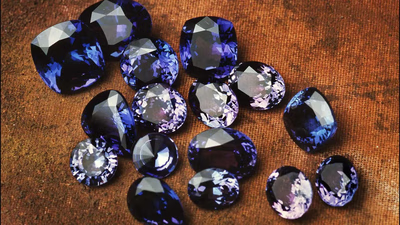
Tanzanite, a rare and captivating gemstone, has gained prominence in the West Asian and Middle Eastern commodity trade, particularly through B2B platforms and regional trading hubs. Known for its vivid hues—ranging from deep blue to violet—this gemstone is primarily sourced from Tanzania, making it a highly sought-after item in global markets. The Middle East plays a pivotal role in connecting Tanzanite traders with buyers across Asia, leveraging verified exporters, supply chain solutions, and market insights for seamless transactions. The Tanzanite stone buying and selling market in West Asia thrives on its exclusivity and aesthetic appeal, attracting significant interest from the jewelry sector. Its value varies depending on color, clarity, and carat weight, with West Asian traders offering competitive pricing through transparent marketplaces. Middle Eastern trade platforms further enhance this by providing regional product listings and fostering business networking opportunities. Alongside Tanzanite, other gemstones like Chrysocolla, Turquoise, Ruby, and Emerald also form a significant part of the Middle Eastern gemstone trade. These platforms integrate verified exporters and importers to ensure authenticity and quality, a vital factor for high-value commodities like Tanzanite and Diamond.
The region"s role as a trade advertising hub promotes market efficiency and connectivity, benefiting traders and buyers alike. Aritral, an AI-driven B2B marketplace, aids in this ecosystem by offering services such as product listing, direct communication, and AI-powered marketing, enabling smooth international trade in gemstones and other commodities. By providing access to real-time market insights, Aritral empowers traders to make informed decisions, driving the growth of Tanzanite and other gemstones in the Middle East and West Asia. "
-
West Asia Gemstone Trade: Topaz and Beyond
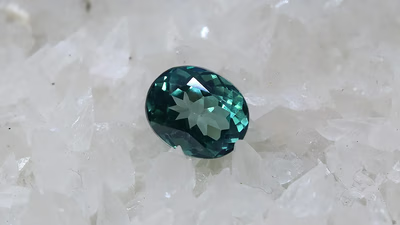
The gemstone trade in the Middle East and West Asia is experiencing a dynamic transformation, driven by robust platforms connecting verified exporters and importers. Topaz, often celebrated for its brilliant and diverse colors, stands as a key player in this market. With reserves spread across the globe, the Asian Topaz Market is particularly significant, bolstered by West Asia"s strategic role in import-export operations. This region facilitates efficient supply chain solutions and transparent business networking, ensuring the seamless movement of topaz and other gemstones like ruby, emerald, and lapis lazuli. Middle Eastern trade platforms are pivotal in fostering growth for gemstones such as chrysocolla, turquoise, pearl, and amber. Chrysocolla, admired for its unique colors, finds its niche in connecting verified exporters from Asia to global buyers. Similarly, turquoise enjoys historical significance in the region, with West Asia acting as a hub for trade and processing. Pearls, often dubbed the treasures of the sea, maintain their allure in the jewelry industry, supported by sophisticated supply chain mechanisms.
Amber, commonly referred to as the ‘Gold of the Sea,’ plays a vital role in West Asia"s gemstone market. Meanwhile, diamonds, emeralds, and spinels drive high-value transactions, leveraging Middle Eastern market insights and advertising platforms. Agate and lapis lazuli, with their distinctive appearances and uses, further enrich the gemstone trade. Additionally, niche markets such as charoite, meteorites, fossils, and tanzanite cater to specialized buyers and sellers. Aritral, an AI-driven B2B platform, simplifies these transactions, offering product listings, direct communication, and AI-powered marketing. By enhancing market transparency and efficiency, it ensures the Middle East remains a cornerstone of the global gemstone trade.
-
Turquoise and Gemstone Trade in the Middle East
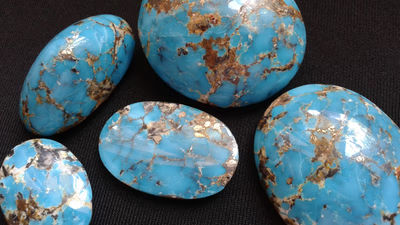
Turquoise, a captivating gemstone known for its vibrant blue-green hues, has been a significant part of Middle Eastern trade for centuries. Historically, Persian turquoise—renowned for its intense color and minimal veining—has been a cornerstone of the region"s gemstone economy. Today, the Middle East remains a vital hub for turquoise and other gemstones like ruby, emerald, and lapis lazuli, serving as a bridge between Asian suppliers and global buyers. The West Asian turquoise market thrives on verified exporters and importers, leveraging B2B platforms to facilitate regional product listings and ensure secure transactions. Turquoise"s value and price vary based on factors like origin, color, matrix patterns, and carat weight. Persian turquoise, in particular, commands premium pricing due to its historical significance and quality. Beyond turquoise, the Middle Eastern gemstone trade includes high-demand stones like ruby, prized for its vivid red hue and role in the jewelry industry, and emeralds, which are second only to diamonds in perceived value. Lapis lazuli, with its deep azure tones, is another significant trade item, often sourced from West Asia to meet global demand for ornamental and jewelry uses.
Spinel, chrysocolla, pearls, and agate also contribute to the region’s gemstone trade, with each stone offering unique attributes and market dynamics. Supply chain solutions play a crucial role in ensuring the efficient import and export of these gemstones. Platforms like Aritral simplify this process by providing AI-powered marketing, product listings, and direct communication tools, enhancing market insights and networking opportunities for businesses in the region. In conclusion, the Middle East"s gemstone market is a dynamic ecosystem, integrating ancient traditions with modern trade practices. Turquoise, alongside other precious stones, continues to captivate global markets, underscoring the region"s pivotal role in international trade.
-
Gemstone and Fossil Trade in the Middle East and West Asia

The Middle East and West Asia are emerging as pivotal regions in the global gemstone and fossil trade, leveraging advanced B2B platforms to connect verified exporters and importers. Among the gemstones, Chrysocolla stands out for its vibrant, unique colors, enriching the jewelry industry and solidifying its importance in Middle Eastern trade hubs. The region also facilitates the trade of turquoise, pearls, rubies, and diamonds, with turquoise playing a significant historical and economic role due to its cultural significance in ancient Middle Eastern civilizations. Verified exporters utilize regional B2B marketplaces to trade gemstones like emeralds, tanzanites, lapis lazuli, and spinels. Emeralds, in particular, are valued not only for their beauty but also for their perceived ability to enhance financial prosperity. Precious stones such as topaz, charoite, jade, and agate contribute to the flourishing gemstone markets, supported by supply chain solutions and market insights tailored for West Asia. The fossil stone trade in the Middle East is gaining momentum, with a focus on diverse fossils, including meteorites and amber, often referred to as the "Gold of the Sea. " Fossils found in specific regions across West Asia are priced based on rarity, geological origin, and historical significance.
International buyers and sellers can leverage platforms for transparent communication, comprehensive product listings, and pricing guidance, ensuring smooth transactions. Aritral, an AI-driven B2B platform, simplifies these trade processes by offering tools like direct communication, global sales assistance, AI-powered marketing, and profile management for exporters. By fostering seamless connections, platforms like Aritral empower businesses to expand their reach in Middle Eastern and global markets for commodities such as gemstones and fossils.
-
Meteorite export
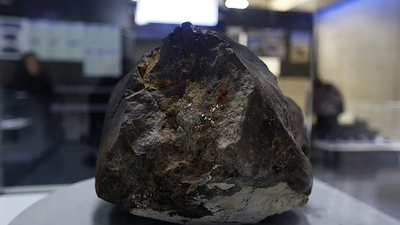
Exporting meteorites requires thorough understanding of legal requirements in both the exporting and importing countries. Each nation may have specific regulations, especially for meteorites deemed national treasures or of scientific significance. Obtaining necessary permits, such as export licenses and certificates of authenticity, is crucial. Cultural heritage considerations can also impact the export process, as some meteorites may be restricted from leaving their country of origin. The market value of meteorites varies significantly, with prices ranging from one dollar to thousands, depending on rarity and demand among collectors. While most meteorites found are common chondrites with low value, rarer specimens like Martian or lunar meteorites can fetch high prices. Proper packaging and shipping methods are essential to protect these valuable items during transit. Engaging with experienced professionals can help navigate the complexities of export regulations and ensure compliance with customs requirements. Additionally, understanding the import regulations of the destination country is vital to avoid complications upon arrival.
-
What is a meteorite?
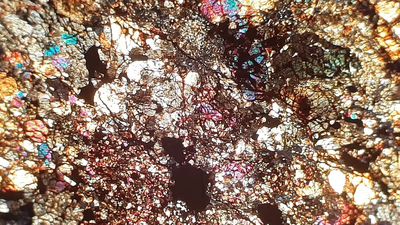
Meteorites are solid objects from outer space that survive their passage through Earth"s atmosphere to reach the surface. They originate from meteoroids, which are smaller space objects composed of rock or metal. When a meteoroid enters the atmosphere, it burns up, creating a meteor or shooting star. If it is large enough to withstand atmospheric forces, it lands as a meteorite. Meteorites vary in size and composition, including stony, iron, and stony-iron types. Meteorite hunting is popular among enthusiasts and scientists who use advanced detection methods to locate them in areas with fewer vegetation. Meteorites are classified as "falls" or "finds," with falls being observed events and finds being discovered objects of unknown origin. They provide crucial insights into the early solar system"s formation and planetary geology.
Studying meteorites helps scientists understand processes related to the evolution of planets and the origins of water and organic compounds on Earth. Approximately 48. 5 tons of meteorite material falls on Earth daily, with impacts varying based on size and speed. Smaller meteorites create minor craters while larger ones can cause significant damage. The study of meteorites is essential for understanding the solar system"s history. "
-
Where are meteorites found?
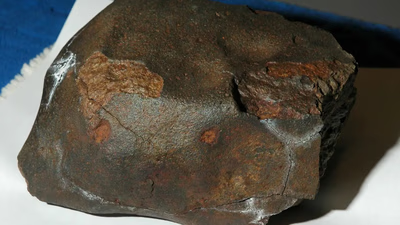
Meteorite hunting captivates many enthusiasts, often leading to a passionate pursuit. The excitement of finding a meteorite can overshadow the reality that initial success may be due to luck. Meteorites, which are remnants of celestial bodies that survive atmospheric entry, are categorized into three types: iron, stone, and iron-stone. Statistically, four meteorites fall per square kilometer on Earth every 50,000 years. In Iran alone, this suggests millions of meteorites have fallen over time. However, many have eroded or become indistinguishable from terrestrial rocks. Iron meteorites are easier to locate due to their resistance to weathering and distinctive appearance. While meteorites can theoretically land anywhere on Earth, searchers often target areas with minimal geological disturbance for better chances of discovery.
Most meteorites fall into oceans or become part of the Earth"s crust through weathering. Notably, Antarctica serves as a significant site for meteorite collection, with thousands discovered by international teams since 2000. "
-
Identifying real and original meteorites
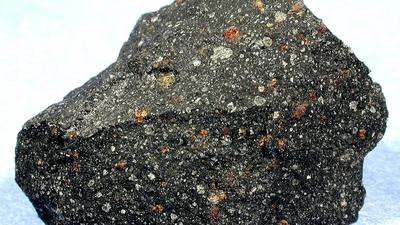
Meteorites are primarily composed of iron-nickel metal, which gives them magnetic properties. A strong magnet can help identify potential meteorites, but this method is not definitive as some terrestrial rocks also exhibit magnetism. Meteorites typically have a fusion crust formed during atmospheric entry, which can appear smooth or textured. Identifying meteorites involves assessing their mineralogical, physical, and chemical characteristics, with advanced techniques like thin section analysis providing more accurate results. Common indicators of meteorites include unusual shapes with regmaglypts—thumbprint-like impressions—and high density compared to terrestrial rocks. Despite many people believing they have found meteorites, less than 1% of discovered stones are actual meteorites. The identification process requires careful examination and often consultation with experts or professional dealers who can perform detailed analyses.
-
Buying and selling meteorites online
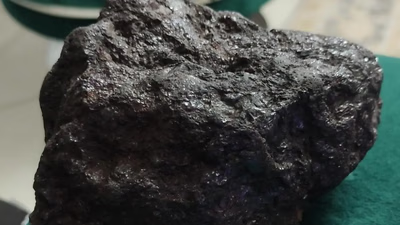
Buying and selling meteorites online presents both opportunities and risks. Authenticity is crucial, as many sellers may offer counterfeit items. Buyers should seek reputable sellers who provide detailed information about the meteorite"s origin and classification, along with supporting documentation like certificates of authenticity. Researching the seller"s reputation is essential to avoid scams. Meteorite prices can vary significantly based on rarity, size, and condition, so understanding market values is important. Legal considerations also play a role; some countries have regulations regarding meteorite collection and exportation. Buyers should be aware of these laws to ensure compliance. The condition of the meteorite affects its value; pristine specimens are often more sought after than those with visible features.
The rise of online platforms has transformed how meteorites are traded, making it easier for buyers and sellers to connect but also increasing the risk of fraud. Therefore, thorough research on both the product and the platform is necessary before any transaction.












































